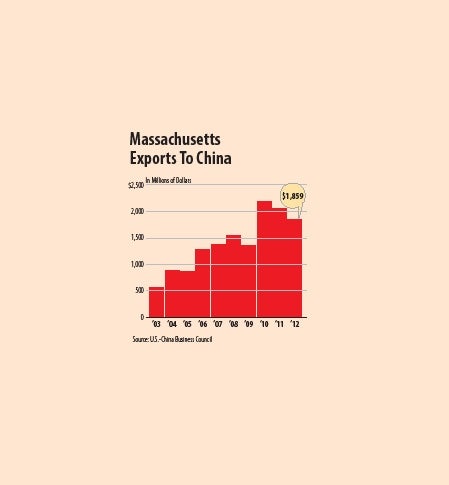AMSC Case Sends Clear Message To China

Last month's federal indictment of Sinovel Wind Group, the Chinese firm alleged to have stolen trade secrets from AMSC of Devens, was no doubt welcome news to the manufacturer of wind energy equipment. AMSC, when it was known by its former name, American Superconductor, had been growing in early 2011 before it announced that its largest client, Sinovel, had stopped paying for past shipments of wind turbine products and cancelled shipments of contracted products.
That was the start of a financial tailspin for AMSC that also highlighted the risks of competing in a global economy if a foreign entity were to play fast and loose with intellectual property law — or blatantly ignore it — without facing the consequences it would otherwise face in the United States.
"The Sinovel case is a classic example of the growing insider threat facing our nation's corporations and their intellectual property,” the FBI's Richard McFeely said in the Justice Department's announcement of indictments against Sinovel and three individuals, two of them employed by Sinovel and the other a former AMSC employee.
AMSC is seeking legal recourse in Chinese courts, but with mixed success so far. For example, last year, a lower court in China dismissed AMSC's suit against Sinovel, as well as another firm, in which AMSC was seeking part of the $1.2 billion it believes Sinovel owes in damages and refused or canceled shipments. Yet in May, the country's highest court agreed to review jurisdictional issues in those two cases.
In a strongly worded statement on the date the U.S. indictments were announced, AMSC President and CEO Daniel P. McGahn said enforcement and protection of intellectual property, “the DNA of new products and technologies, is essential for U.S. companies to compete successfully in a global economy. This is impossible if companies in countries such as China are brazenly stealing trade secrets through industrial and cyber espionage.” The lack of “substantive action” by China's legal system, McGahn added, “demonstrates that the rights of foreign businesses are not being protected.”
This is especially important for Massachusetts companies. Exports to China from the Bay State grew 229 percent from 2003 to 2012 (to $1.86 billion), compared with just 33 percent growth for the rest of the world, according to The U.S.-China Business Council.
China's transition from a state-run to a market-based economy has meant a great increase in wealth for the most populous nation on the planet. But lining up with much of the rest of the world also means playing by its rules, especially since China — according to a report from the Congressional Research Service — wants to modernize its economy by shifting from an emphasis on manufacturing to innovation. That alone means it will need to take intellectual property protection more seriously.
The recent U.S. indictments of Sinovel and the three individuals send a clear signal to China that its courts need to begin recognizing the rights of foreign companies that want to do business there. Once they do that, the country's businesses will have no choice but to follow that signal. That would be a good step for AMSC and many other Massachusetts manufacturers who rely on China as a critical market.
Read more












0 Comments